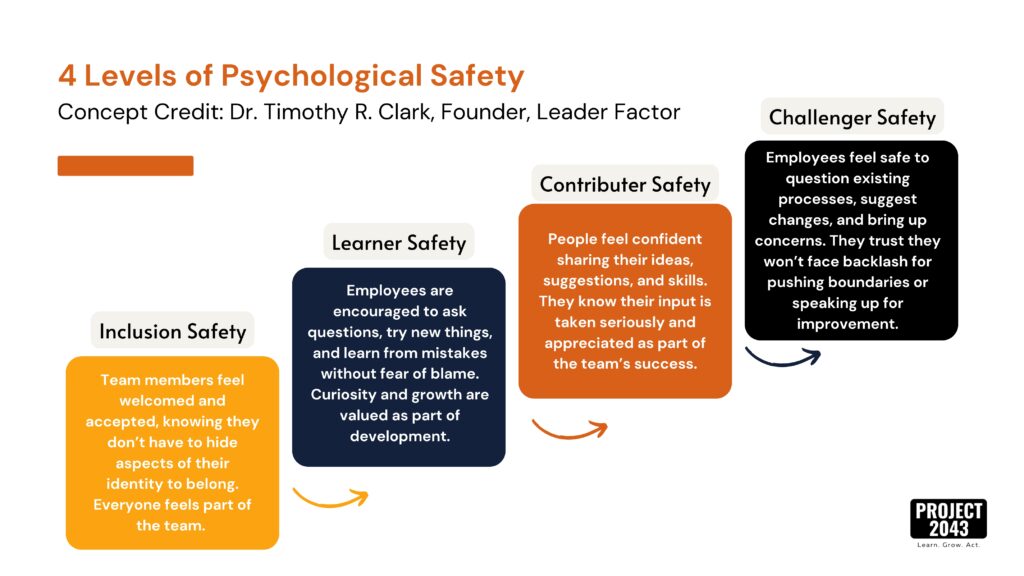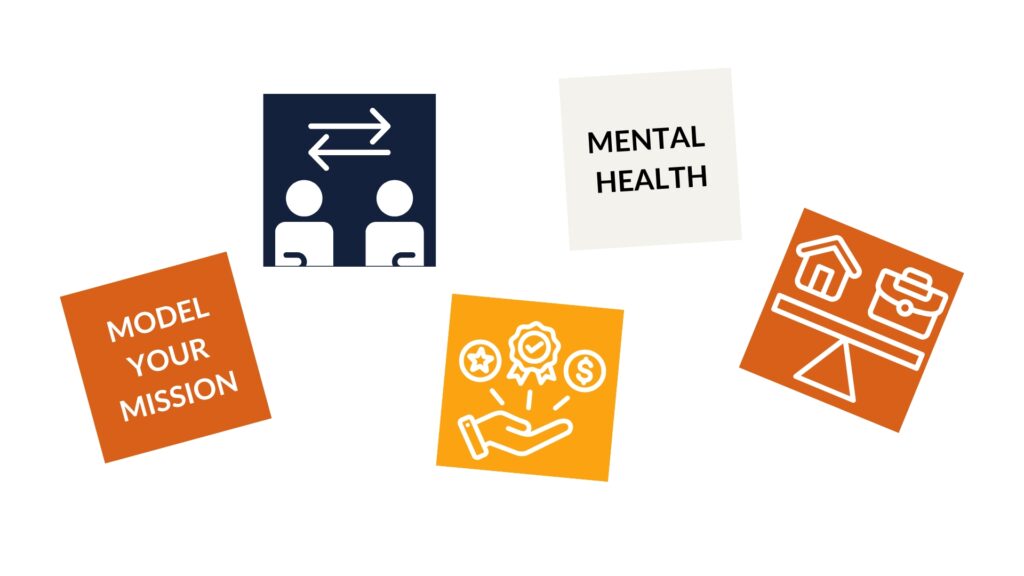Understanding Psychological Safety in the Workplace
Psychological safety goes far beyond simple comfort—it’s about creating a secure space where team members can share ideas, make mistakes, and show up authentically without fear of judgment or repercussions. Researcher Amy C. Edmondson captures this beautifully, describing it as
A belief that one will not be punished or humiliated for speaking up with ideas, questions, concerns, or mistakes.” – Amy Edmondson
Source: https://haiilo.com/blog/psychological-safety/
At its core, psychological safety is the bedrock of any effective Diversity, Equity, Inclusion, and Accessibility (DEIA) strategy. It ensures that everyone—no matter their background—feels valued and respected. This foundation helps cultivate a true sense of belonging, where team members aren’t just allowed but encouraged to contribute their unique perspectives, ideas, and experiences openly.

Why Psychological Safety is Essential
Psychological safety is essential for Diversity, Equity, Inclusion, and Accessibility (DEIA) to truly flourish. Here’s how it serves as a foundation for DEIA success:
First, psychological safety empowers all voices. For diverse perspectives to make an impact, employees need to feel secure in sharing them. Without a sense of safety, underrepresented voices may remain silent, held back by fears of judgment or exclusion. A psychologically safe environment, on the other hand, builds confidence, encouraging everyone to speak up and driving innovation and inclusion.
Second, it fosters accountability and constructive feedback. When team members feel safe, they can discuss opportunities and issues openly, hold one another accountable, and address issues constructively. This openness is crucial to ensuring DEIA initiatives have a meaningful and inclusive impact.
Finally, psychological safety reduces bias and helps address microaggressions. In a supportive environment, employees feel empowered to confront biases and microaggressions constructively, promoting a culture of growth and learning. Team members can speak up about harmful behaviors without fear, creating a workplace where respect and empathy are genuinely practiced.
Practical Steps to Build Psychological Safety
Creating a psychologically safe environment takes intention and effort. Here are a few ways to begin:
- Value Every Voice: Let your team know that every perspective matters and is essential for success.
- Celebrate Individuality: Show respect for each person’s unique background, honoring what they bring to the table.
- Encourage Open Feedback: Regularly ask for input and listen actively to make everyone feel their ideas are welcome.
- Respond Supportively: Build trust by acknowledging and appreciating what team members share.

Conclusion
In a workplace where psychological safety is prioritized, employees feel empowered to share their ideas and perspectives without hesitation. This culture encourages open communication and respect for diverse viewpoints, allowing teams to approach differences with openness and curiosity rather than judgment. Accountability is also encouraged at all levels, creating an environment where feedback is welcomed and everyone is invested in mutual growth. In this safe space, people feel comfortable addressing concerns and raising questions when something doesn’t feel right, knowing that their voice matters. These elements together create a supportive foundation that allows both DEIA initiatives and overall workplace well-being to flourish.
If you’re looking for help to foster this culture, Project 2043 is here to support you.

 Breaking Barriers: The Critical Need for Diverse Leadership
Breaking Barriers: The Critical Need for Diverse Leadership